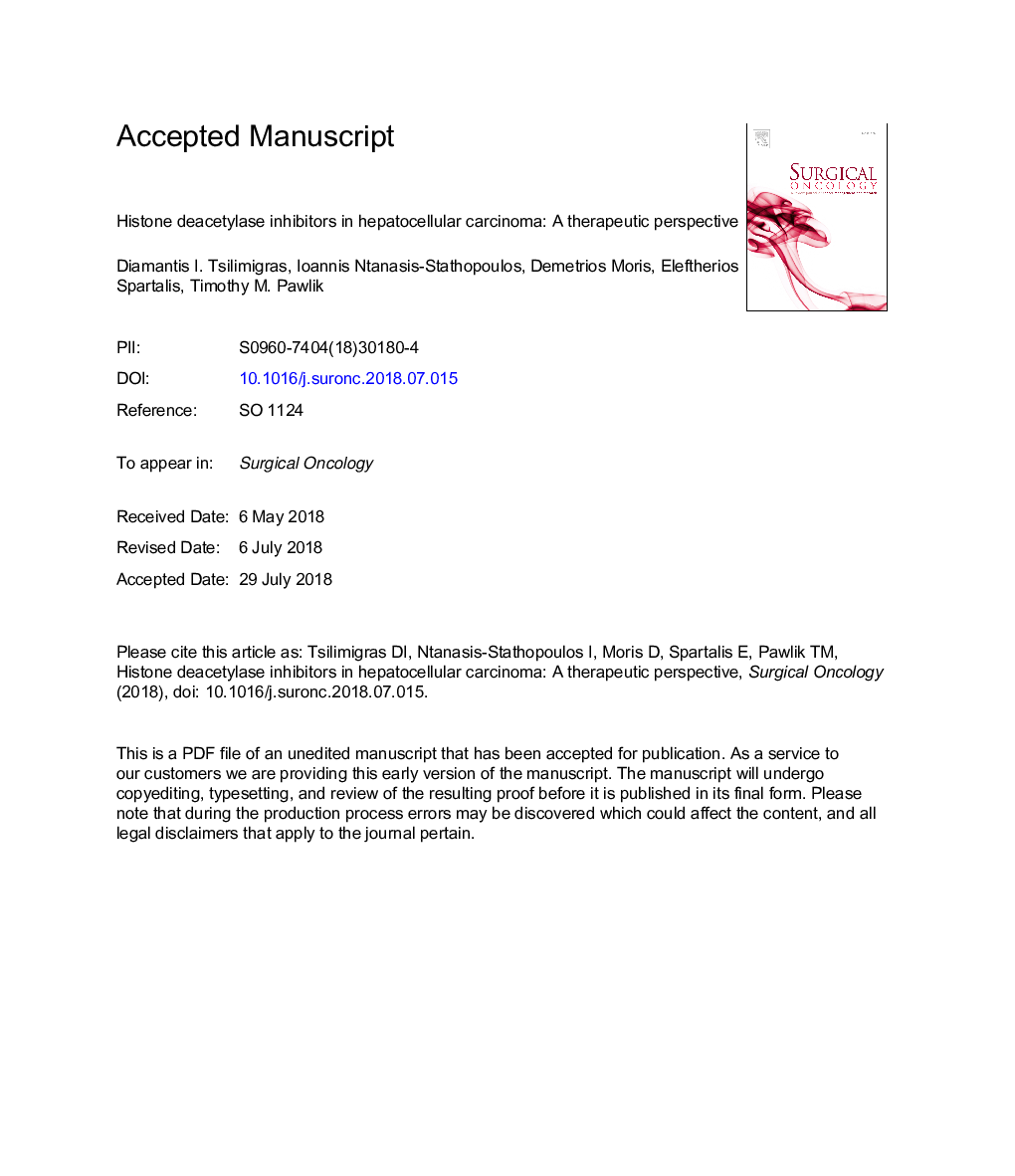| Article ID | Journal | Published Year | Pages | File Type |
|---|---|---|---|---|
| 8789619 | Surgical Oncology | 2018 | 39 Pages |
Abstract
Hepatocellular carcinoma (HCC) is a major contributor to the global cancer burden. Given the current limited options to treat advanced HCC, understanding the molecular basis of HCC carcinogenesis and pinpointing druggable targets will be important to identify future HCC treatments. Epigenetic modification by inhibiting histone deacetylases (HDAC) is an emerging approach with promising results in cancer treatment. In the preclinical setting, HDAC inhibitors such as valproic acid sodium, panobinostat, vorinostat, trichostatin A, sodium butyrate, belinostat and romidepsin have demonstrated antitumor efficacy via activation of classic and alternative cell death molecular cascades. Combination regimens with the tyrosine kinase inhibitor sorafenib, poly(ADP-ribose) polymerases, proteasome and mammalian target of rapamycin inhibitors have shown promise. Phase I/II clinical studies with belinostat monotherapy and the combination of resminostat with sorafenib have suggested response and survival benefits. The safety profile was favorable with manageable adverse events and a low incidence of grade 3/4 toxicity. We herein review the role and potential therapeutic impact of epigenetic regulation through histone deacetylase inhibitors (HDACi) in the treatment of HCC.
Related Topics
Health Sciences
Medicine and Dentistry
Oncology
Authors
Diamantis I. Tsilimigras, Ioannis Ntanasis-Stathopoulos, Demetrios Moris, Eleftherios Spartalis, Timothy M. Pawlik,
